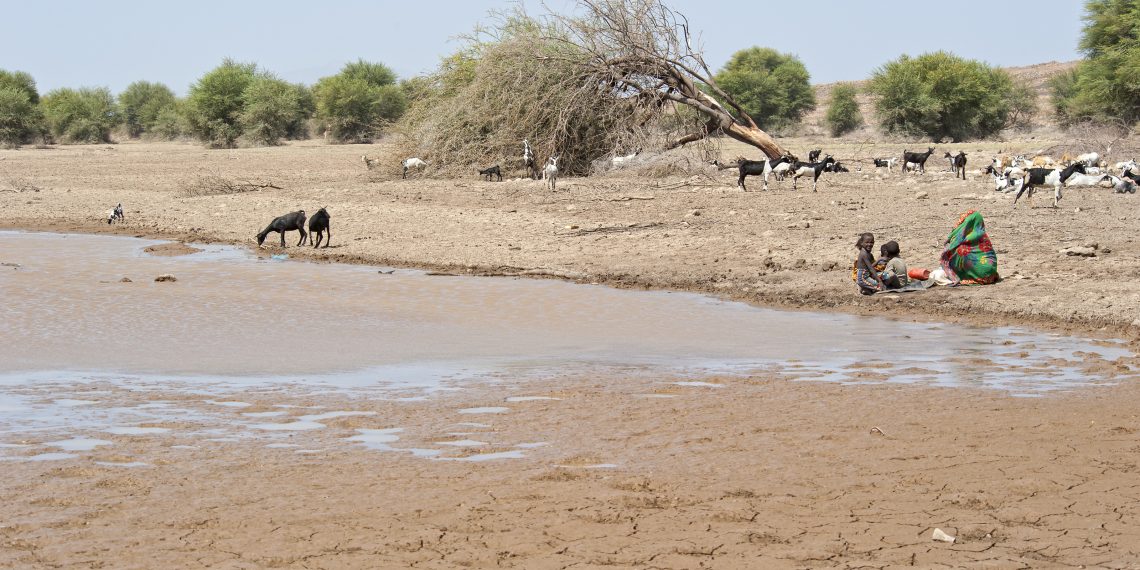Water-related conflict and political instability are on the rise across the globe. The factors that drive such conflict and instability seem to be intensifying, including: population growth, economic expansion, severe and prolonged drought, climate change, pollution, the destruction of natural landscapes, upstream infrastructure development (such as dams and diversions), inefficient water use in agriculture, poor water resources management and weak institutions. While a water crisis is rarely the only cause of conflict, water crises can contribute to a country’s instability.

Just as no single driver causes conflict, no single solution will eliminate water insecurity. Fortunately, a wide variety of solutions are available. In a new report, Ending Conflicts over Water: Solutions to Water and Security Challenges, the Water, Peace and Security Partnership, WRI and the Pacific Institute identify several dozen strategies to reduce water-related conflicts, in four broad categories:
- natural resources, science and engineering approaches;
- political and legal tools;
- economic and financial tools; and
- policy and governance strategies.
Below we outline examples of how solutions in each of these four broad categories can work.
Natural Resources, Science and Engineering Approaches
Constraints on the availability of water supplies in many parts of the world have led to a focus on improving water use efficiency and eliminating wasteful uses of water. In Iraq, for example, only about a third of treated municipal water actually reaches customers, with about 68% of water lost. It is likely easier and cheaper for Iraq to find and cut losses in its urban water systems than to find new sources of water.

These kinds of improvements are available in every sector of the economy, such as investment in improved irrigation technologies, improvements in industrial processes and investment in infrastructure and technologies that can reduce pre-consumer food loss. More efficient systems do not necessarily lead to lower water use because efficiency gains are often used to expand production. This is why efficiency improvements need to be accompanied by water-use limitations, demand caps or redirection of water allocations in highly water-stressed regions.
Political and Legal Tools
Some tensions over water are related to ecological problems associated with human-driven factors, such as over-extraction of surface water and groundwater. In Iran, for example, the drying of Lake Urmia, the central Gavkhouni marshes, the Hawizeh marshes along the Iraq-Iran border and the Sistan and Hamoun marshes in the east have each contributed to local protests over water policy and allocations. In India and China, many lakes and rivers are drying up as a result of over-extraction of water, extreme weather or a combination of factors.

This over-extraction of water causes ecological collapse, which incites protests. Many wealthier countries mitigate these types of risks by imposing minimum river flow requirements, which can halt over-extraction. The international community can help poorer countries establish their own river flow requirements through technical assistance programs.
Economic and Financial Tools
Water prices rarely reflect the true costs of providing it. Increasing prices to reflect the full cost of service could help pay for current operation and maintenance costs while providing reliable financing to improve and expand water infrastructure. Pricing structures should also protect access to safe and adequate water and sanitation — a basic human right — for poor and disadvantaged communities, through carefully designed tariffs, subsidies and safety-net programs. More generally, water pricing should reflect societal values of efficiency (economic values), inclusiveness (social values) and sustainability (environmental values).

People queue for water in New Delhi, India.
Policy and Governance Strategies
Broad-based engagement of water users, communities and other stakeholders in water-resources management is required to make informed and legitimate decisions. We need such engagement now more than ever, as climate change and growing demands on natural resources make more people compete for limited water supplies.
The Restoration Initiative in Kenya’s Tana Delta provides an example of successful engagement with stakeholders. Tensions between local farmers and animal herders over increasingly scarce water and land reached a high point in 2012 when 286 people died in clashes between these communities. By bringing communities together to participate in land-use decisions, the Restoration Initiative has helped over 100 villages restore and better manage natural resources, reducing local tensions.
Barriers to Implementing Solutions Must Be Overcome

A woman harvests rice in a paddy in Nedumangad, India.
Earlier this year, the Water, Peace and Security Partnership was awarded the 2020 Luxembourg Peace Prize for Outstanding Environmental Peace, an indication of the growing value being placed on identifying and addressing water-related conflict as early as possible. While we can usually identify solutions to water and security challenges, they are often difficult to implement for a number of reasons, including: political and economic trade-offs inherent in the proposed solutions, problems associated with collective action, such as the issue of “free riders” who use services without paying for them, scarce financial resources and/or technical capacity, social or cultural barriers and widespread and entrenched corruption. These barriers can be overcome with sufficient political will. More research is needed to understand how best to generate this political will and implement the solutions necessary.

In the meantime, we need to target key international, national and local stakeholders and make the political case to implement necessary but difficult solutions to water and security challenges. Otherwise, we will likely see a rising number of water-related conflicts, water scarcity- and flooding-induced displacements of populations and failed states.
Solutions exist for even the thorniest water problems. Now we need significant political will, collective action and successful management of trade-offs and vested interests to implement them.



